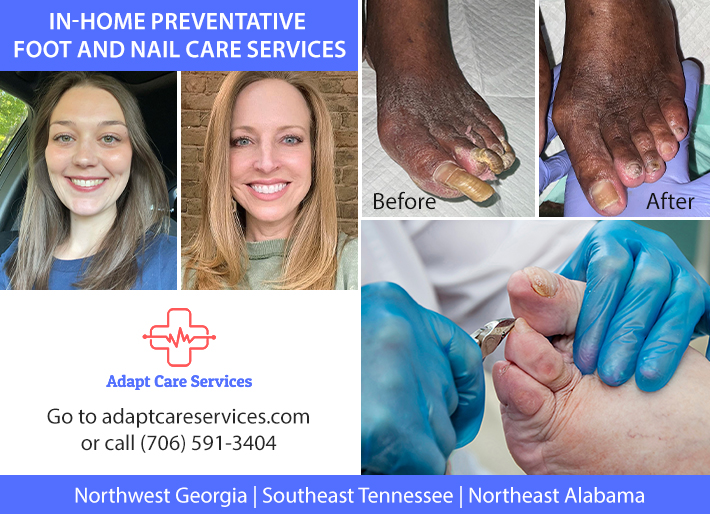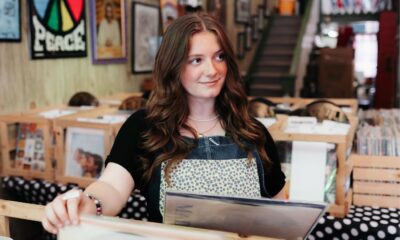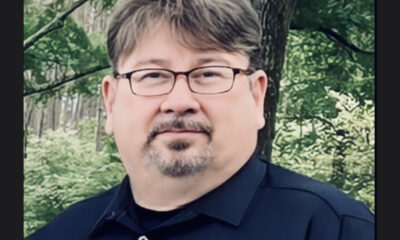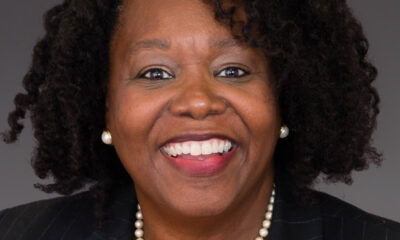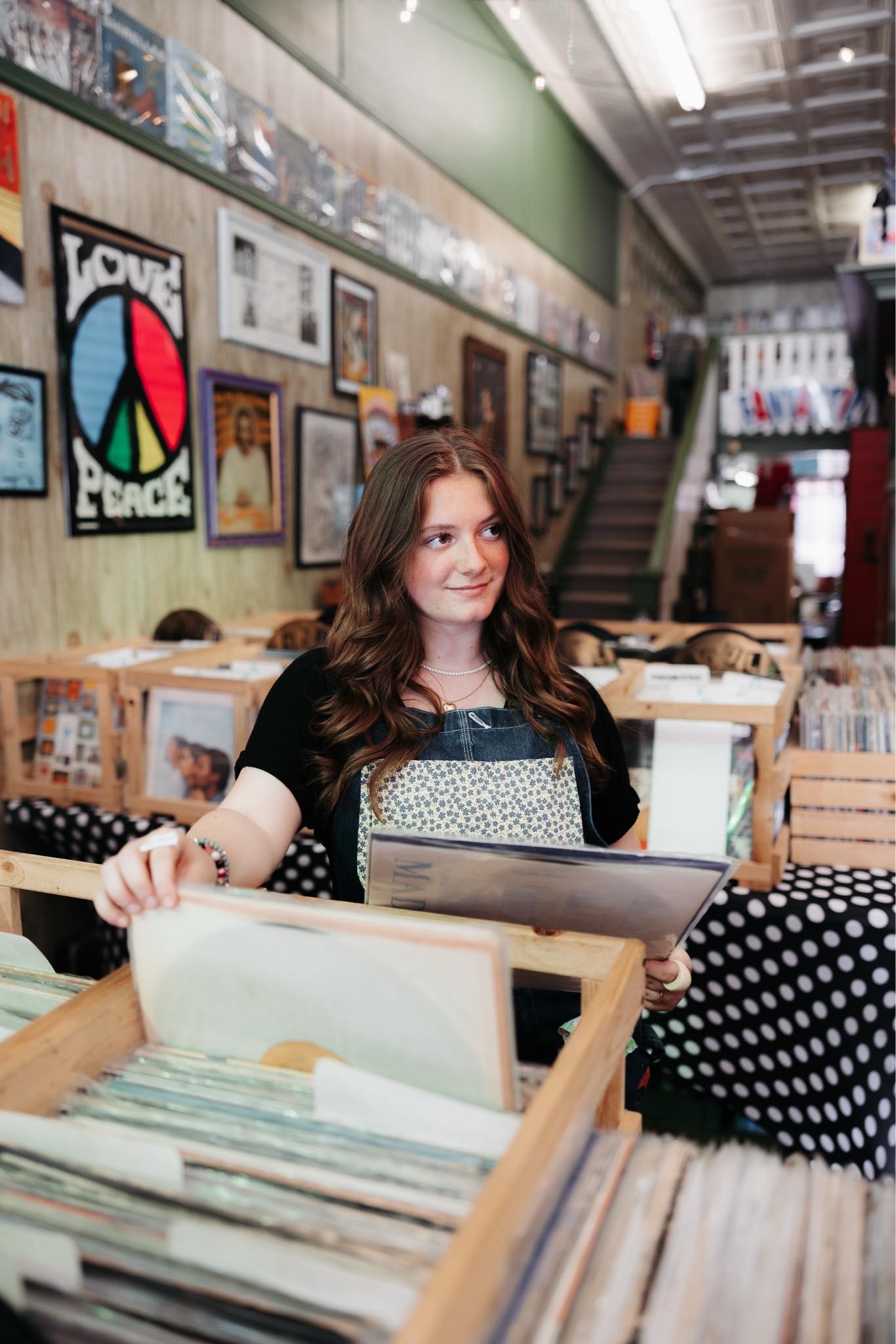
I’ll never forget the mixed bag of reactions I got to the exciting news of my acceptance to Yale. My friends were surprised but thrilled. My family was proud. The entire town of Summerville was so kind and supportive, even people I had never met before. But soon enough, the novelty wore off and the reality set in. I started receiving backhanded comments, both to my face and behind my back to my parents and other family members.
“Are you sure it’s a good idea to go somewhere so… different”
“They sure are liberal up there! Don’t let them change you.”
“People aren’t very accepting of folks like you up there. You’ll want to come home, just wait.”
“Are you going to let her go up there?” My personal favorite, said to my dad. Like he had a choice in the matter. I’m paying tuition.
I’m sure you would love to hear me say that these statements struck fear in my Conservative heart and that I doubted my decision. Maybe I considered attending Shorter or Berry instead; after all, good Christians don’t go to Ivy League schools. But, that’s not at all what happened. In reality, they just made me want to prove those people wrong. I wanted to prove that I could enter Yale as a Christian Conservative and leave an Educated Christian Conservative, and I wanted to do so with an open mind.
The extent of most people’s knowledge of Ivy League schools comes from what they see on television, especially what they see in the news. The Professors are Ivy League and Top 25 graduates who have lived in the Northeast for upwards of 35 years. They have exorbitant amounts of Tenured Professor Money and they donate to the Bill and Melinda Gates Fund and the DNC. The students are from Los Angeles and New York City. They vacation in the Hamptons and Martha’s Vineyard. They wear patches that say “Yale Divest From War,” and they stand on the corner on a Saturday afternoon with a red-and-green lettered sign and a bullhorn. They would never vote red, no matter what the candidate’s beliefs and policy ideas are– in fact, they don’t even need to look into their policies because they don’t care as long as the ticket is blue. They are Liberal Extremists. They’re highly educated but incredibly misinformed because they only get their news from MSNBC and CNN, and they blindly follow people like AOC, Pete Buttigieg, and Kamala Harris. I was told to watch out for those people; they’re dangerous.
So, what’s the alternative? Well, to be like Rural Georgia Republican voters, of course! They only have what’s best for America in mind, that’s why they only listen to President Trump, Marjorie Taylor Greene, and J.D. Vance. They don’t want to be misinformed, so they only get their news from trusted sources, like FOX News. They want to show their support for the right kind of leaders, so they don their MAGA hats and Gulf of America t-shirts. They believe in the protection of American Democracy and Conservative ideals, so they would never vote blue. They don’t need to do research on the candidates; all Democrats are a threat to American principles and want a big government to take our rights, so they’ll just vote on an all-red ticket because they’re the good guys. After all, they want to Make America Great Again, so how could they be wrong?
The connection is eerie. What is the difference between hard-line party voters of the Right and the Left? In all honesty, not a whole lot. Sure, their policies differ, but their attitudes are the same. No one is right except for them, and they don’t want to hear anyone else’s opinion. While these two sides are on completely opposite ends of the political spectrum, they’re much more similar than you’d think. Both Right and Left-wing extremists create an echo chamber of opinions where they become unable to hear anyone but themselves, which is dangerous for democracy and for our country. Polarizing leaders and politically charged media are driving the wedge deeper between the two sides, demonizing places like Yale by only focusing on the extreme opinions that exist there. But is that the norm, or is it just a loud minority?
The answer isn’t so black and white, but it is much more promising than people of Chattooga County want me to believe. Sure, Yale is mostly Democratic, as are most Universities. But they are not mostly Leftist. There is a difference. In fact, most of the people I know are relatively moderate. From what I have found in my first year at Yale, most people are genuinely curious and want to know why you believe what you believe. They are not full of hate for Republicans; they are simply from a different world and grew up facing different problems than we do in Rural Georgia. Any time anyone asks me about the political environment at Yale and whether I feel ostracized as a Republican, I tell them this story.
It was late in my first semester, and I had just started being more comfortable talking about my political beliefs. Until then, I was what my friend Grace calls a “Closeted Republican,” because I was a bit nervous I would have a hard time making friends if I was too open about my beliefs. In November, I attended a small get-together in a friend’s suite. Also in attendance was an acquaintance whom I had met several times, but was not very close to. He was from LA, his parents were models, and he was a social and economic Democrat— basically a direct foil of myself and my personal experience. Since it was the height of election season, politics were brought up, and somehow my opinion became the topic of conversation. I was afraid that, in the presence of such a mixed company, I would be flamed for my views and that I would be looked at negatively by these people that I didn’t know very well. Instead, this acquaintance and I shared a meaningful conversation that I will always carry with me as I navigate difficult conversations in an increasingly polarized political landscape. He said:
“I don’t think you’re a bad person because you vote Republican. We grew up in completely different worlds, with completely different worldviews. In your area, you watched your community struggle under the Biden Administration. It impacted your economy more than it impacted mine. In my area, climate change is a serious threat that we see the repercussions of, but you see that less in your community. We all have different struggles, and we all have different opinions that are formed from the places we grew up and the experiences we lived. There’s nothing wrong with that.”
In this statement lies the nature of most Yale students. While there are some exceptions, most students are accepting of other opinions, as long as they are spoken with respect and without hateful, belligerent intent. My two best friends in the whole world, Cleia and Grace, are Democrats. They voted for Kamala Harris. They were devastated when she lost. They have also never spent a day of our friendship speaking negatively about my political opinions. They are curious about my convictions, and they want to know why I align with the principles of the Right. I have never questioned their friendship, and I know they would do anything for me, even though I am a filthy Republican.
All jokes aside, I wonder how true that is for the people back home. I only knew a few Democrats, and they were labeled as outsiders. I’m sure they never quite felt welcome in a lot of spaces in our community, and they were often from somewhere else or moved somewhere else in their adult life. Being a Democrat in Chattooga County will land you on the prayer request list at the church and as common enemy number one in a Facebook comment section. My grandparents would just about prefer I become a Nun than bring home a Liberal. I have no doubt that Southern Hospitality reaches all the way to Democrats, but I do think it is much less common for people at home to have a civilized conversation about politics with a member of the opposite party. It always ends in mudslinging, bitter words, and hurt feelings.
This isn’t to say that everything is fair game in utopic Yale University. It is very hard to talk about Donald Trump without someone at least giving you the look of someone who just watched you kick their dog. However, I don’t feel as though that has to do with party divisions, but instead with extreme polarization. Let’s face it, President Trump isn’t an agreeable guy. He starts fights, he doesn’t care what anyone else thinks, and in his eyes, no one is as intelligent and incredible as he is. That’s not the kind of politician that two people can come to an agreement on; he’s the kind of politician that creates further division in an already divided union. Politicians like Trump and Marjorie Taylor Greene are more concerned with being loud and making a name for themselves than they are concerned about their fellow Americans and the people they represent. Democrats can agree to disagree on leaders like the Bushes and Raegan, but it’s hard to look at such angry individuals and call a truce. In my opinion, those types of figures are not a good representation of the Republican Party, and even Democrats can see that.
The same is true for Far-Left Democrats as well. Cleia and I had an hour-long conversation this week about political extremism and how there are no reasonable, moderate candidates on either side anymore. Grace will often tell me about classmates who are disliked by the entire lecture hall and are so far Left that they can’t see how bizarre they sound– but everyone else can see that they sound ridiculous. These people aren’t the norm, and the majority of our student body also find them insufferable.
Although there are limitations to the open dialogue at Yale, I have found that I can be completely free about expressing my political opinion, and I have been fortunate enough to find spaces where people share my beliefs. For one, I have fallen in quite well with the Navy ROTC Unit at Yale, which is entirely random but has provided me with a network of Conservative Republicans who are also simply great people to be around. I also have noticed that both sides of very politically charged, media-highlighted issues are represented on campus. While the extravagant pro-Palestine protests are displayed in the media, pro-Israel groups thrive and create their own spaces on campus. I wrote about this on my Facebook once in response to a memorial set up on Cross Campus for the victims of the October 7th attack in Israel. I think that quoting yourself is a slightly insufferable thing to do, but I don’t chew my cabbage twice, and I couldn’t word it better now than I did then, so here is what the post read:
“Yesterday was October 7th. As we all know, this marks the one-year anniversary of the tragedy that happened in Israel, and the beginning of what seems to be a never-ending conflict between Israel and Gaza. There are varying opinions on the events happening in the East; this post is not about that.
As most of you know, I attend Yale University— a high-profile institution known for its student’s political activism. As many more of you know, the media … covers only the dark and dystopian versions of this political activism on campus. But, as very few of you know, this isn’t always the truth.
In fact, students here DO have diversity of thought. Not only that, but they are willing to hear differing opinions and perspectives on current events… I’ve met very few people on campus who would shame anyone for their values, political alignment, or anything else, for that matter. This is something that many people back home simply can’t wrap their heads around. How could any Liberal Ivy League “Yankee” Institution have multi-dimensional people?
It’s simple. People have humanity, and people have common sense. These are the most brilliant and educated minds in the world. They can think through basic political philosophy. Politics don’t exist if there is only one side.
Back on the “people have humanity” front, even Yale University can have enough heart to understand what happened on October 7th was a tragedy, no matter what front you stand on. Yesterday, on Cross Campus (a central area of campus with the most foot traffic), the Yale Slifka Center, our Jewish Cultural Center (a very lively and well-supported group by our media-dubbed “Jew-Hating” University), set up a vigil and memorial for those that fell during the attacks on Israel as well as the hostages that are still in Gaza. The table in the middle has the faces of the hostages taped onto the chairs, and surrounding the table are exhibits of towns and villages in Israel before and after Palestinian attacks. There is also signage for each of the American hostages in Gaza.
About 250 feet away, there was a Pro-Palestine vigil and shrine for Palestinian families that have died due to the impacts of the war. This vigil was much smaller, likely out of respect for those mourning for Israel nearby.
The two sides were peaceful. They did not bleed into each other. They existed in harmony.”
This display of political harmony made me realize that the problem isn’t one side or the other, nor is it the fact that two sides exist. The problem is that we’ve let our differences divide us so wholly that we can no longer see the other side for who they are: Americans. Human Beings. People with lived experiences and circumstances that make them believe what they do. The beauty of Yale is that we all come from such diverse backgrounds, we understand our differences, and we want to use those differences to inform our own opinions and widen our scope of this big blue planet we live on. We can all disagree, but we can find individuality in our disagreements and exist side by side. But, as I said in October, so many thought this was impossible, which is exactly what needs to change.
“You cannot make assumptions about a group of people until you’re a part of them or at least interact with them with an open mind. You can’t complain about a divided world and then refuse to associate or communicate with different-minded people. If you do this, you’re the problem.
I know many of you were worried I would go off to college and change. You’re absolutely right. I did change. I learned how to stand up for myself and advocate for what I believe in eloquently, with poise and grace. But also with boldness. What I’ve learned from Yale University thus far is that I don’t have to take what everyone else says around me as truth. I can challenge it. I can find out for myself. And I don’t have to listen to other people’s jealousy disguised as advice.”
So, I challenge you to do as Yale students do and look beyond the bounds of someone’s political opinion, and try to see their heart. The fault of political polarization and extremism is not limited to one side or the other, but it is something that must be stopped by both sides. So, as a Christian, Conservative Republican at Yale, I will do my best to maintain an open mind to all opinions and perspectives, because I don’t know what someone has lived through to gain those beliefs. If we all work together to end the division in our nation, maybe we could actually Make America Great Again, one step at a time.





